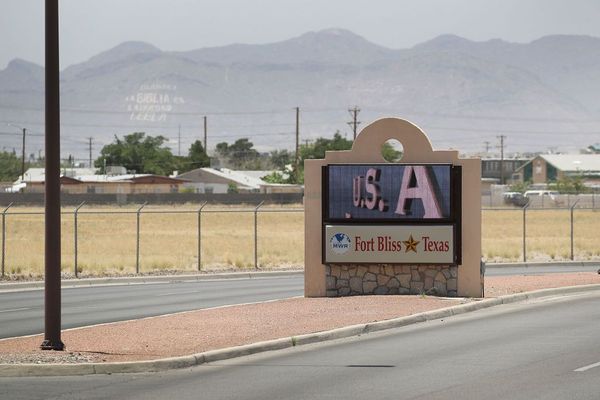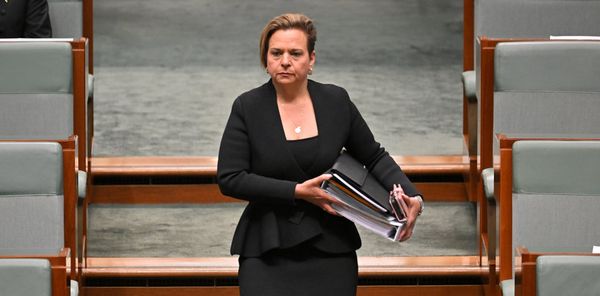
Joe Biden has, at least for a while, defused a ticking carbon bomb. Climate activists and the fossil fuel industry are now left wondering how long it will last.
The decision on Friday by the Biden administration to pause all pending export licenses for liquified natural gas (LNG) to consider the climate impact of the projects has been hailed as a momentous shift in the status quo by those concerned by the unfolding climate crisis.
“World leaders agreed to transition away from fossil fuels at the Cop28 climate negotiations last year and president Biden’s decision today to pause new permits for LNG exports shows that he is taking that pledge seriously,” Al Gore, the former US vice-president, said.
From nothing a decade ago, the US now has eight LNG export terminals and is the world’s largest exporter of the gas, which is extracted, piped, chilled and sent overseas on ships. The pace of growth is extraordinary – the Calcasieu Pass 2 (or CP2) project, a vast planned hub on Louisiana’s coast, would ship up to 24m tons of LNG each year once built and become one of the biggest such terminals in the world.
CP2 is at the vanguard of a frenzy of new gas export infrastructure along the Gulf of Mexico coast that would, if fully realized, result in an estimated 3.2bn tons of greenhouse gases each year, close to the annual emissions of the entire European Union and severely imperiling hopes of avoiding catastrophic global heating.
Stopping CP2 and a dozen or so other proposed gas facilities has become a priority issue for US environmentalists and Biden’s decision, which should delay projects until after the November presidential election, provoked jubilation. The delay is “the biggest thing a US president has ever done to stand up to the fossil fuel industry”, according to Bill McKibben, the veteran climate campaigner.
Biden has come under severe progressive pressure over the gas buildout, which only heightened after his administration approved the controversial Willow oil project in Alaska. The world cannot afford any new major fossil fuel projects if it is to avoid dangerous global temperature rises, the International Energy Agency (IEA) has found.
CP2, which would have an emissions impact 20 times larger than that of Willow, has therefore become framed as a test of Biden’s climate credentials before an election where he will be looking for the votes of those concerned about global heating while also fending off Republican attacks over energy costs and the need to supply European allies with gas in the wake of Russia’s invasion of Ukraine.
Key questions remain unanswered, such as whether the delay is merely a tactic to remove an awkward issue before November or if it will lead to a more lasting reform of federal permitting that explicitly accounts for climate change concerns alongside more nebulous “public interest” criteria that haven’t been updated since the 1980s.
US government agencies have, until now, typically disregarded climate as an issue when waving through oil and gas facilities and pipelines. That looks like it may change.

“To preserve a livable planet, we need a public interest test that denies any new project that would drive us further into climate catastrophe and violate US commitments to transition away from fossil fuels,” said Jean Su, the director of the Center for Biological Diversity’s energy justice program.
Climate considerations should slow but would likely not stop the growth of an LNG export industry that is set to double in size over the next four years, according to Jeff Navin, who was chief of staff at the energy department during Barack Obama’s administration.
“It’s not shocking the administration would at least consider the impacts of these projects on climate change and it’s entirely possibly they could decide they are a net positive for the climate because the gas would displace dirtier coal overseas,” said Navin, now a consultant.
“Not every terminal is going to be stopped. But it’s going to put pressure on facilities to think about how gas is produced and transported in terms of methane leaks.”
While the delay has been welcomed by climate activists, it will likely prove ammunition for the fossil fuel industry and its Republican allies including Donald Trump, who has vowed to “drill, baby, drill” and attacked Biden for hindering the industry, even amid a record glut of oil and gas production.
Mitch McConnell, the Republican leader in the US Senate, said that the pause is “directly at odds with America’s interests on the world stage”. A coalition of oil and gas industry groups has written to the Biden administration to complain that the decision will “only bolster Russian influence” and risk American jobs.
Critics, however, point to evidence that boosting LNG exports drives up domestic gas prices for Americans and that the raft of planned terminals would take several years to build anyway, beyond a 2027 timeframe in which European Union countries have vowed to end reliance upon Russian gas and pivot to renewable energy. According to the IEA, European gas demand will fall 8% by 2026.
“Expanding LNG infrastructure in the USA and in the EU is a high economic risk that will very likely end up as stranded assets,” warned Claudia Kemfert, an economic expert at the German Institute for Economic Research and Leuphana University in Germany.
For those living amid the tumult of new gas infrastructure along the Gulf coast, the pause is a relief, if a rather tenuous one. The terminals could still be built even with Biden as president, and will almost certainly go ahead if Trump is to win the election.
“A pause can be unpaused anytime,” said Travis Dardar, a fisherman in Louisiana who has campaigned against the LNG expansion in his community.
“We know first-hand how ruthless these gas export companies can be. They shoved these gas export terminals down our throats, destroying our fishing grounds, clogging the channel we use with their massive tankers, and constantly sending poisonous smoke into our air.”
Biden, Dardar said, needs to “deny all gas export terminals, and let this sinking industry fall to the bottom of the sea”.







